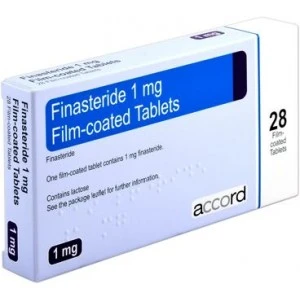How to reduce the side effects of finasteride?
Finasteride is a medication used to slow or prevent hair loss. In some cases, it has been known to promote hair regrowth, although this is not the ultimate aim for those taking this particular drug. It works by preventing testosterone from being converted into DHT (the hormone responsible for hair loss), thereby reducing its effects. To be effective, finasteride needs to be taken every day; once someone stops taking this drug, hair loss will begin once more.
Finasteride appears to be the ideal way to halt the progression of hair loss. However, as with many drugs, there are side effects to watch out for. These include:
Common side effects (more than one in every 100 men taking finasteride)
- erectile dysfunction
- low sex drive
- producing less semen
Uncommon side effects (less than one in every 100 men taking finasteride)
- breast area tenderness or swelling
- rashes and skin reactions
Rare side effects (the numbers have not been calculated)
- heart palpitations
- pain in the testicles
- liver abnormalities
- signs of male breast cancer
- allergic reactions (dizziness, swollen lips and tongue, itchy skin, breathing problems)
Not everyone who takes finasteride will experience these side effects, but if you do, there are several ways to manage them and alleviate the issue. Read on to find out more.
Stop Taking Finasteride
The easiest way to reduce (in this case, eliminate) the side effects of finasteride is to stop taking the drug altogether. Unlike some medications, finasteride is not addictive, and it will not harm you or make you unwell if you stop taking the pills each day. However, do bear in mind that if you do stop taking finasteride, your hair loss will begin again exactly as it did before – the effects of the drug only last while it is in your body.
You will need to weigh up the pros and cons of what will happen if you stop taking the drug compared to the side effects you were experiencing when you did take it. The choice is ultimately yours, but it is wise to seek medical advice, especially if the side effects are more serious.
Reduce Oestrogen
One of the reasons why some side effects of finasteride occur is due to the increase in oestrogen within the body.
This accounts for the erectile issues and the breast tenderness or pain, for example. When DHT is eliminated, the oestrogen within the body becomes stronger. Therefore, reducing the amount of oestrogen can have a positive impact on the side effects. Examples of how to do this include:
- Losing weight
- Taking zinc supplements
- Eating more cruciferous vegetables (such as broccoli, kale, Brussels sprouts, and cauliflower)
- Taking aromatase inhibitors
Exercise
Exercise is important, regardless of your activity level or the medications you may be taking for any condition. However, when it comes to reducing the side effects of finasteride, exercise can be extremely helpful.
Exercise is a good stress reliever, reducing the amount of cortisol (the ‘stress hormone’) and replacing it with serotonin (the ‘feel good’ hormone). This can have a positive impact on any sexual issues you might be experiencing due to taking finasteride. It will also help you to lose weight, which, as mentioned above, is another good way to reduce the side effects.
Increase Vitamin D
Many of us are deficient in vitamin D, and therefore, taking supplements to boost our vitamin D levels is a good idea. If you are experiencing side effects from finasteride, vitamin D can help alleviate them.
A vitamin D deficiency can affect sperm quality, and since this condition can be exacerbated by taking finasteride, taking vitamin D supplements may help improve fertility.
You can easily increase your vitamin D levels by exposing yourself to sunlight frequently. When exposed to sunlight, cells in our bodies produce vitamin D, which offers numerous benefits to our bodies.
Finasteride is a popular and highly effective medication for hair loss. Still, as with any drug, there are side effects that could make finasteride difficult or impossible to take for some people. If you are concerned about these side effects or suspect that you may be experiencing them, consult your doctor immediately for expert advice.
Finasteride
- Slows hair loss
- Promote hair growth
- Available from a UK-registered pharmacy
Authored & Reviewed By

Mohamed Imran Lakhi
MPharm - Lead PharmacistPublished on: 12/12/2019 Reviewed on: 05/06/2025
© 2013 - 2026 Al Muhsineen Limited. All Rights Reserved. Registered Pharmacy: 34 Halliwell Road, Bolton BL1 8RL. Registered Office: 254 First Floor, Shearbrow, Blackburn, England, BB1 8DS






